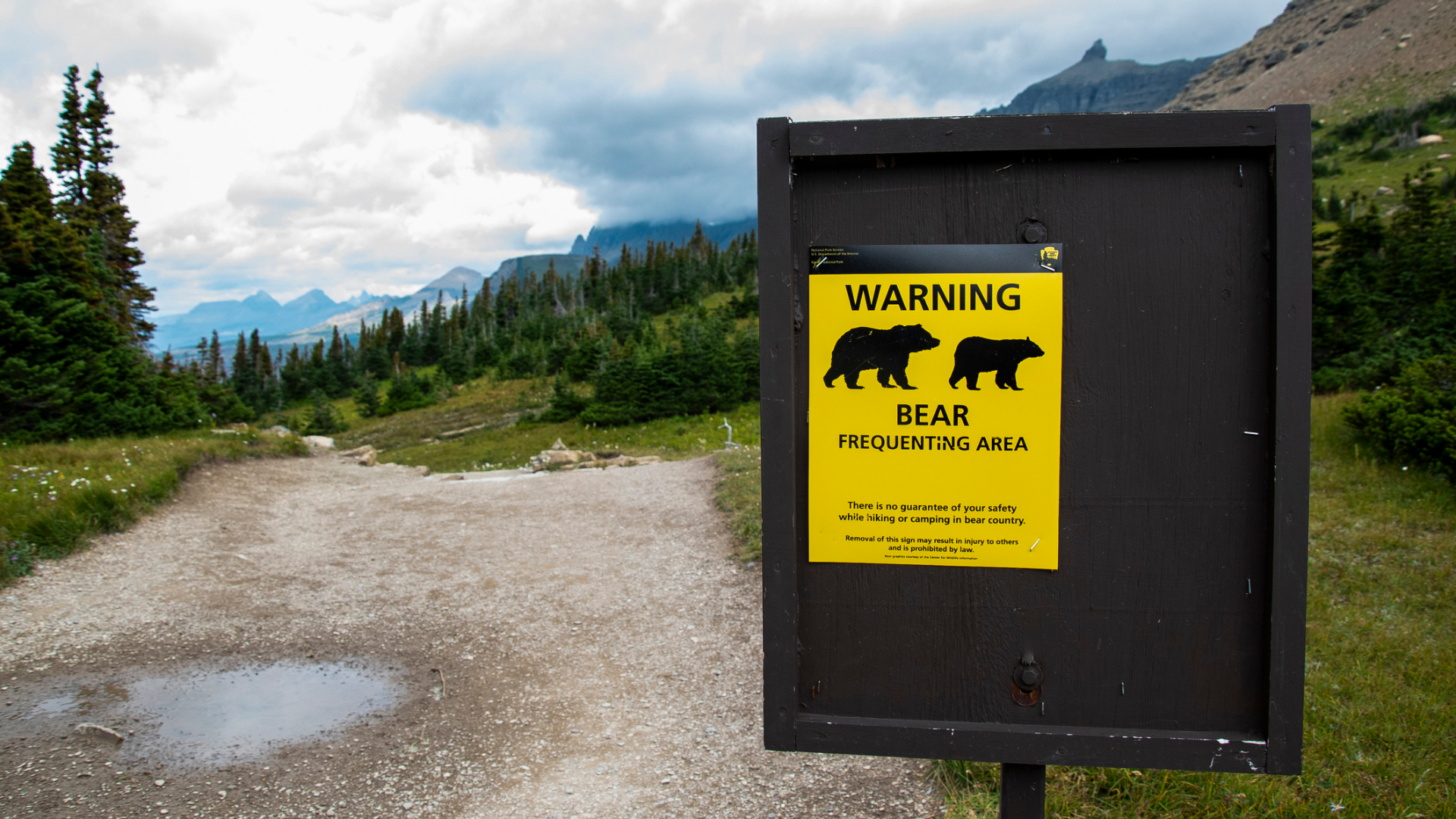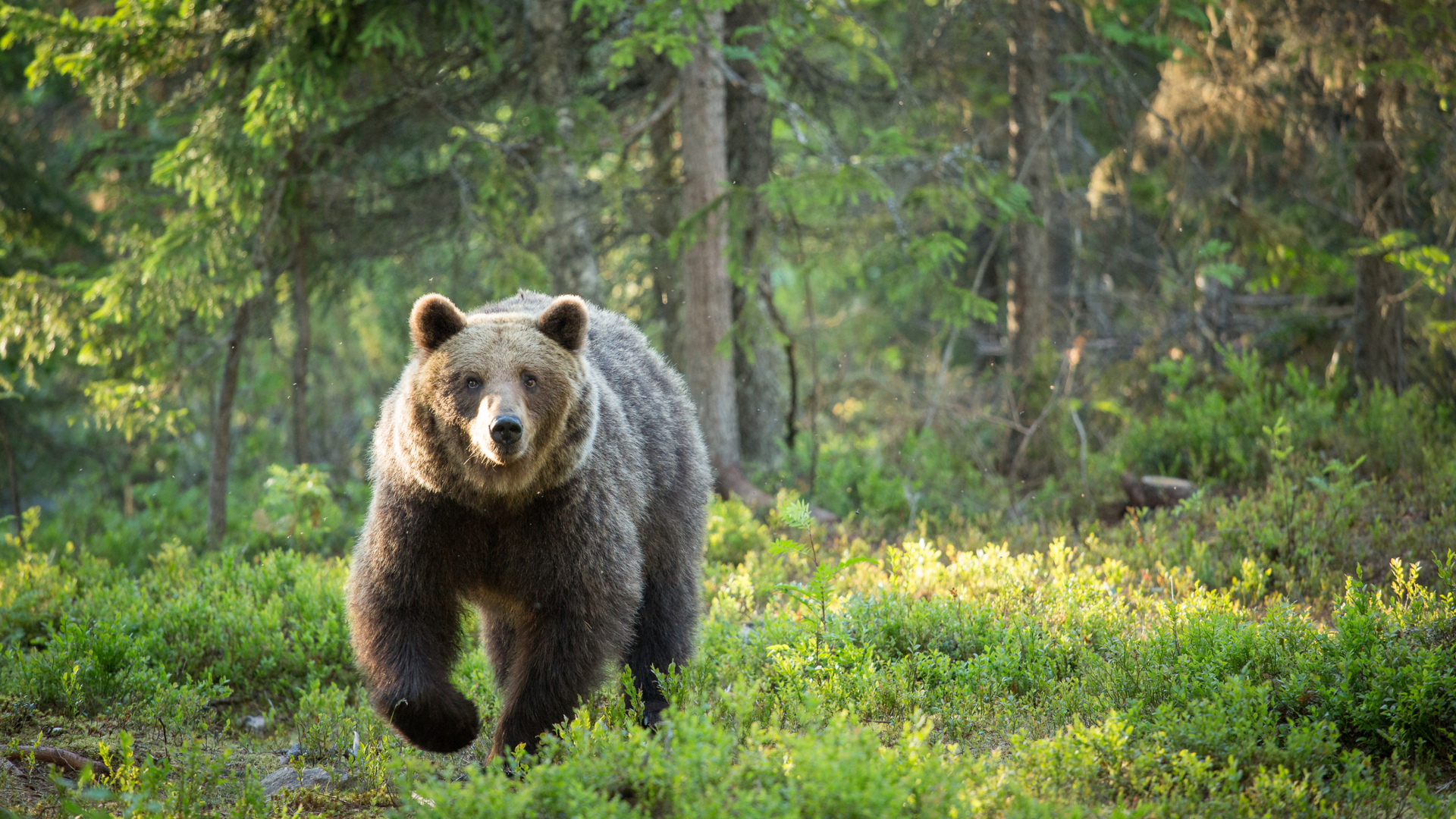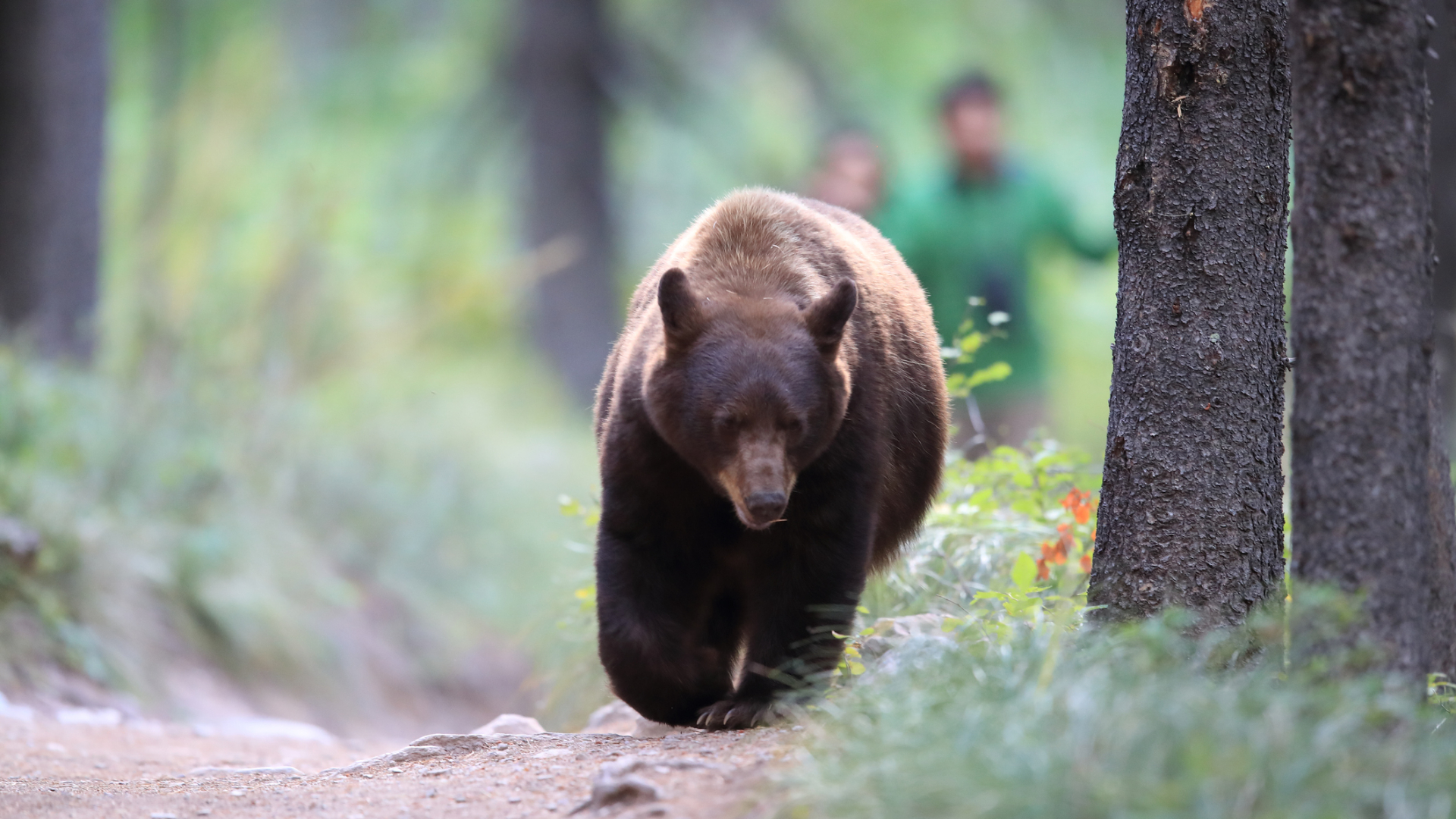Do bear bells work? Or do they just make you into an annoying hiker?
Do bear bells work? We dive into the research on whether bells help repel bears in the backcountry, or just disturb local wildlife and other trail users

If you're taking a bear bell into the backcountry, you're well within your right to know whether or not it will act as a deterrent. The last thing you want is to alert bears to your presence and have them roam over to investigate.
Attaching a bear bell to your hiking backpack also means that you're shattering the serenity of the great outdoors and other trail users may not take as kindly to your jingles as they would on Christmas Eve.
So, as part of our never ending pursuit to keep you – and local wildlife – safe on the trails, we sent one of our backcountry hiking experts to delve into the current research around bear bells to try to answer the oft-asked question: do bear bells work?
Do bear bells work?
Concrete evidence on whether bear bells work is difficult to find. Research suggests bears move away most of the time regardless of if you have a bear bell or not.
There's data that suggests that bears are more likely to move away if you're NOT wearing a bell. However, the same study also found no one wearing a bell was ever charged at, whereas a small percentage of people without a bell were.
The US National Park Service say that clapping and yelling are much more effective if a bear is near, an assertion that's backed up by a separate study.
For more detail on all of this, and where the recommendations came from, see The Research section further down this guide.
All the latest inspiration, tips and guides to help you plan your next Advnture!
Meet the expert

Julia's education on how to repel bears on the trail took place as she explored American's backcountry trails and national parks. These days, she's back in her native Scotland, where the wildcat is the largest surviving land carnivore. Nevertheless, she still remembers her bear avoidance techniques.
Today's best deals
What is a bear bell?
- A bear bell attaches to a backpack and sounds a lot like a sleigh bell
- In theory, the sound warns bears, natural shy creatures, of your presence, thus lowering the probability of an encounter
- Research on the effectiveness of bear bells is inconclusive

A bear bell is simply a small bell with a loop that sounds a lot like a sleigh bell and attaches to your hiking backpack so when you walk, it jingles. The premise of bear bells is that the best way to deal with bears in the wild is to avoid encounters with them altogether. By taking advantage of bears’ natural shyness, you walk carrying a bell and its sound alerts them to your presence. More often than not, a bear attacks because you startle it, or accidentally make it feel threatened, but when it hears you coming a long way off, it ambles out of the way and any unwanted interaction is avoided.
On the surface of it, the idea of bear bells makes a lot of sense. As with most wildlife, like mountain lions and moose, the key to surviving an encounter is generally to avoid it in the first place, and most such animals prefer to give us humans a wide berth than square off in a hostile confrontation in the woods. In fact, it seems downright polite to let them know when you’re planning to be clumping through their territory in your hiking boots so that they can move along. But it didn’t take us long to discover that research on the effectiveness of bear bells is patchy at best, while some hikers argue against using them for other reasons.
The research
- Research suggests bears move away most of the time regardless of if you have a bear bell or not
- There's data to suggest that they're more likely to move away if you're NOT wearing a bell
- However, the study found no one wearing a bell was ever charged at
- Whereas a small percentage of people without a bell were charged at

In looking for arguments for using a bear bell, we stumbled upon a 1999 master’s thesis by a University of Calgary student, which cites earlier research that found that when hikers wore bells, bears that had been resting moved away from the approaching hiker in 67% of observed cases. Meanwhile when hikers weren’t using bells, bears stood their ground in 26% of instances. This study is quite often cited as an argument for using bear bells, but if you look a little closer at those numbers, they actually reveal for hikers that weren’t using bells, in 74% of cases the bear also moved away. In other words, the resting bears were more likely to move away from hikers who weren’t carrying bells than those who were.
In observed cases where the bear had been travelling towards the hiker, the argument against bear bells is further strengthened, with bears changing direction 50% of the time when the hiker was wearing a bell, but 79% of the time when they weren’t. So it’s all looking quite good for the non-bell wearers. But if you’re just about to chuck your bear bell in the bin, hang on a sec, because the study also found that no hikers carrying bear bells were ever charged by bears, whereas in hikers without bells, 14% were charged, which sounds like 14% more than is comfortable. That figure might be enough to have you reattaching your bell right now.

- Another study suggests bears repsonded to other sounds humans make more than the jingling of bells
- The US National Park Service says clapping and yelling are much more effective if a bear is near
The argument against bear bells seemed to pick up some steam a couple of years ago, when a new study emerged by a US Geological Survey scientist that is also often cited in discussions about bear bells, but seems to have disappeared from the internet. Articles about the study at the time described the scientist, named Tom Smith, jingling bells at bears in Katmai National Park and concluding that they didn’t respond at all. They did, however, respond to other sounds of an encroaching human, such as the cracking sound of a twig breaking. Without the original study, it’s hard to draw firm conclusions, but is it possible that in the earlier study where bears moved away from hikers carrying bells, it was actually because they were making other noises that alerted the bears to their presence?
Though we don’t have a definitive answer on that, we did decide to see what the US National Park Service has to say about all this, since it manages the territory of thousands of bears. According to their official bear safety information, bears probably won’t hear your bell until you’re too close to them for it to help, and other noise-making activities like yelling and clapping are more effective.
So, what's the best approach?
- There isn’t any conclusive evidence that bells are effective at repelling bears
- Bear bells are just one method you could try, along with bear horns, chatting with friends and generally making noise.

So what can we gather from all this? There isn’t any conclusive evidence that bells are effective at repelling bears, nor is there any that they really work, yet. The arguments against bear bells are that they can be annoying for other hikers who are out trying to enjoy some peace and solitude on the trail, and perhaps more importantly, they might disturb other wildlife and scare off animals such as birds that you might quite like to see. But they also might reduce your chances of being charged by a bear by 100%. It’s hard to say.
If all this ambiguity is leaving you lukewarm about jingling your way up the trail much to the chagrin of others, you can definitely use other deterrents such as a bear horn and hiking with friends where you’re generally going to be chatting and making more noise than if you’re hiking alone. Learn more in our article on what to do if you encounter a bear and remember to keep your eyes and ears open whenever you’re hiking in bear country.
Julia Clarke is a staff writer for Advnture.com and the author of the book Restorative Yoga for Beginners. She loves to explore mountains on foot, bike, skis and belay and then recover on the the yoga mat. Julia graduated with a degree in journalism in 2004 and spent eight years working as a radio presenter in Kansas City, Vermont, Boston and New York City before discovering the joys of the Rocky Mountains. She then detoured west to Colorado and enjoyed 11 years teaching yoga in Vail before returning to her hometown of Glasgow, Scotland in 2020 to focus on family and writing.

